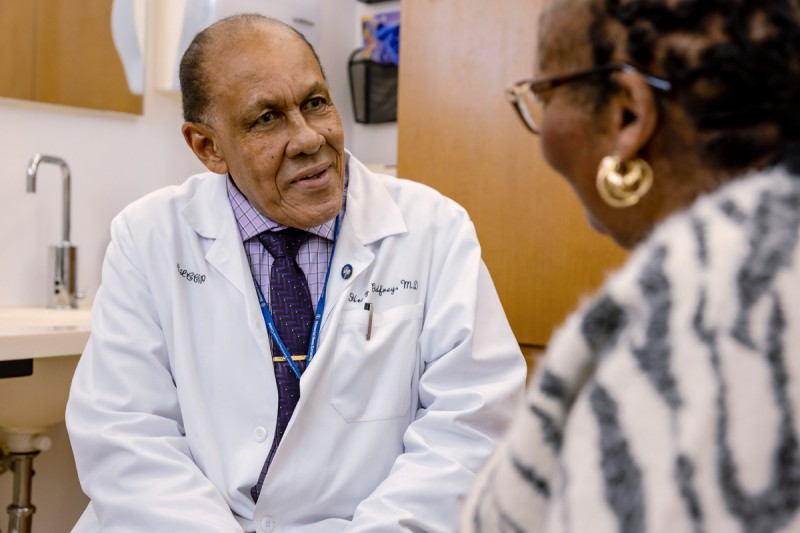
The clinical care component of the Office of Health Equity is aimed at helping racial and ethnic minorities and medically underserved populations access MSK’s programs in cancer prevention, screening, and treatment. Specific programs include:
- The Endometrial Cancer Equity Program (ECEP), based at MSK Nassau, aims to support those diagnosed with this disease in accessing appropriate care, treatments, and clinical trials that may ultimately help improve outcomes for all people facing these diseases.
- Providing faculty and staff with education about the importance of diversity and cultural sensitivity to MSK’s mission of providing high-quality cancer care to our community. Training includes seminars on cancer health disparities, community outreach, and the collection of racial and ethnic demographic data.
- Working with appropriate groups at MSK, including the Patient Access Committee, the Language Assistance Program, and the Departments of Marketing & Communications to identify and remove cultural, language, and financial barriers that diverse and medically underserved patient populations face in accessing cancer care.
- The MSK Ralph Lauren Center offers cancer prevention, diagnosis, treatment, and support services. Since its founding in 2003, the MSK RLC has served the Harlem community and surrounding neighborhoods by providing high-quality care in a warm, welcoming, and culturally sensitive environment.
- Working with community-based organizations and local cancer support groups to provide education and awareness of cancer prevention, screening, and treatment services available at MSK.
- Co-directing the Partnership Community Outreach Program — the community outreach arm of a partnership between The City College of New York (CCNY) and MSK — dedicated to helping communities take advantage of community-academic collaborations to improve public health, and providing support and resources for investigators at CCNY and MSK. MSK’s Chief Health Equity Officer serves as the principal investigator, overseeing and developing community outreach initiatives with CCNY. Such initiatives pair researchers with community groups to foster community-based participatory research.






